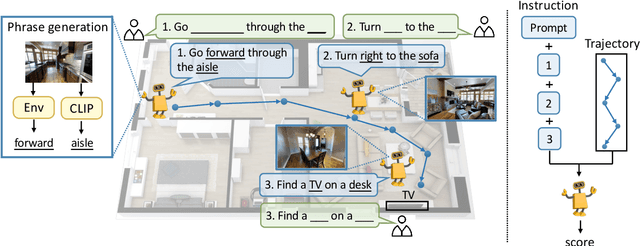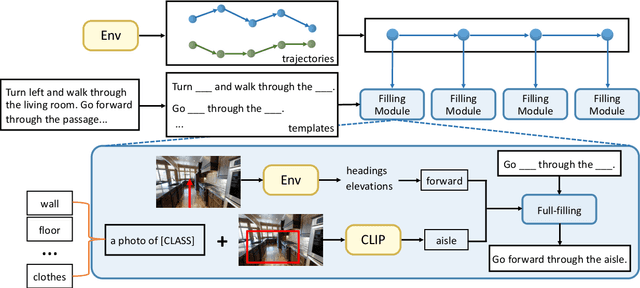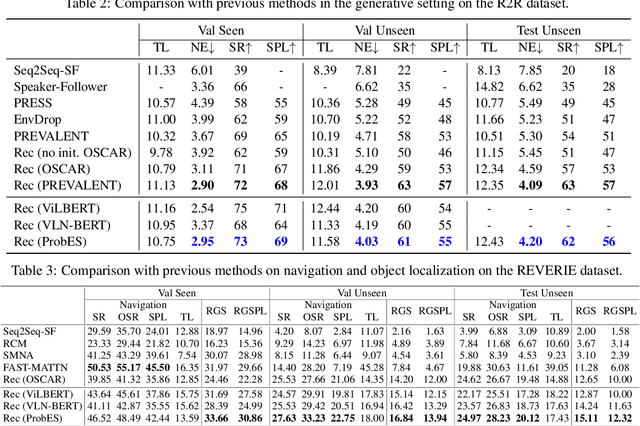Visual-Language Navigation Pretraining via Prompt-based Environmental Self-exploration
Paper and Code
Mar 08, 2022



Vision-language navigation (VLN) is a challenging task due to its large searching space in the environment. To address this problem, previous works have proposed some methods of fine-tuning a large model that pretrained on large-scale datasets. However, the conventional fine-tuning methods require extra human-labeled navigation data and lack self-exploration capabilities in environments, which hinders their generalization of unseen scenes. To improve the ability of fast cross-domain adaptation, we propose Prompt-based Environmental Self-exploration (ProbES), which can self-explore the environments by sampling trajectories and automatically generates structured instructions via a large-scale cross-modal pretrained model (CLIP). Our method fully utilizes the knowledge learned from CLIP to build an in-domain dataset by self-exploration without human labeling. Unlike the conventional approach of fine-tuning, we introduce prompt-based learning to achieve fast adaptation for language embeddings, which substantially improves the learning efficiency by leveraging prior knowledge. By automatically synthesizing trajectory-instruction pairs in any environment without human supervision and efficient prompt-based learning, our model can adapt to diverse vision-language navigation tasks, including VLN and REVERIE. Both qualitative and quantitative results show that our ProbES significantly improves the generalization ability of the navigation model.
 Add to Chrome
Add to Chrome Add to Firefox
Add to Firefox Add to Edge
Add to Edge